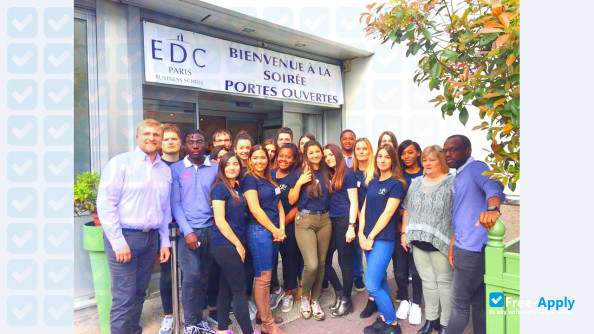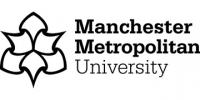MSc Childhood Development and Wellbeing in Practice
Explore inequalities in childhood and the factors that can nurture or disrupt child development. Analyse the critical frameworks for understanding relationships such as attachment theory. Critically examine the evidence base and use of practices in children’s services.
Designed for people with an interest in working in children’s services and education facilities, this course will encourage you to explore how to promote positive mental health for young people across a variety of settings.
You’ll develop your practical psychological skills in assessment, formulation and intervention planning, as well as your awareness of yourself as a practitioner.
Some of the topics you’ll study include psychological theories (such as Bowlby’s attachment theory) and how developmental, societal and environmental challenges influence all aspects of young people’s lives. You’ll also learn how to identify and nurture protective factors.
You’ll have a series of guest lectures throughout this course, especially throughout specialist units, to help you understand how the theory you learn in the classroom applies to the practice setting.
Guest lectures include experienced clinical and educational psychologists who contribute to a number of training programmes, as well as specialist speakers with a focus on trauma, creative therapeutic approaches and the development of novel trauma-informed services to help you explore career options.
For this course, you’ll usually complete a service-based dissertation that informs service development or specific interventions for children, young people or families.
Our masters degree in Childhood Development and Wellbeing is designed for practitioners working with children, young people and families, and students looking to develop a foundation in theory and practice issues relating to young people’s mental health.
You might be a social worker, youth worker or a teacher looking to update your knowledge of mental health in children and young people. Or, you might be a speech and language therapist looking for a course combining theory with skills practice.
Whichever stage you’re at in your career, our course focuses on developing your therapeutic and clinical skills, theoretical knowledge, applied research skills, and explores wellbeing for practitioners.
What will you learn and how will you learn?
Some of the topics you’ll consider include key mental health and wellbeing constructs during childhood, ‘typical’ development, strategies to maintain your wellbeing at work, and how to design research projects with impact.
The course will give you the opportunity to understand how major life events and intersectional issues affect development and growth, as well as practical tools for undertaking assessments and designing effective interventions for young people across a range of settings.
Practical skills sessions typically focus on skills such as employing standardised assessment tools, managing important issues surrounding consent and confidentiality when working with young people, and how to be an effective member of an interdisciplinary team.
You’ll learn through a variety of teaching methods, including lectures, seminars, interactive workshops and case studies. You might debate policy, analyse examples in practice, share experiences, or present to your class, taking on the role of lecturer.
In some sessions, you’ll work in groups to develop your networking and sharing skills and experience. For other sessions, you’ll work individually and focus on your specialist area.
As you’ll be part of a multidisciplinary team when you work in practice, you’ll experience interdisciplinary teaching from across the Faculty of Health, Psychology and Social Care. Our teaching staff includes people with experience in nursing, public health, and nutrition.
When will you learn?
Core course teaching takes place on Mondays and Tuesdays, although additional study skills teaching and supervisory meetings will take place throughout the week. Therefore, full-time students should ensure they are able to attend all teaching and supervision meetings to maximise their learning experience throughout the course.
Part-time students have core teaching on Mondays in year one and Tuesdays in year two. In year two, part-time students will also need to attend Wednesday lab classes monthly and allow time for dissertation prep.
We recommend one day per week is allocated for independent study for the dissertation from the beginning of year two.
All students should be available for meetings with tutors and supervisors on Wednesdays and Thursdays throughout the year.
Campus Information
Manchester campus
In the city centre, our Manchester Campus is well connected by many types of transport. Where possible, we encourage the use of walking or cycling to access the campus.
Intakes
- Sep
Application Processing Time in Days: 20
Application Process
Minimum English Language Requirements
| English Level Description | IELTS (1.0 -9.0) | TOEFL IBT (0-120) | TOEFL CBT (0-300) | PTE (10-90) | |
|---|---|---|---|---|---|
| Expert | 9 | 120 | 297-300 | 86-90 | |
| Very Good | 8.5 | 115-119 | 280-293 | 83-86 | |
| Very Good | 8 | 110-114 | 270-280 | 79-83 | |
| Good | 7.5 | 102-109 | 253-267 | 73-79 | |
| Good | 7 | 94-101 | 240-253 | 65-73 | |
| Competent | 6.5 | 79-93 | 213-233 | 58-65 | |
| Competent | 6 | 60-78 | 170-210 | 50-58 | |
| Modest | 5.5 | 46-59 | 133-210 | 43-50 | |
| Modest | 5 | 35-45 | 107-133 | 36-43 | |
| Limited | 4 | 32-34 | 97-103 | 30-36 | |
| Extremely Limited | < 4 | < 31 | < 93 | < 30 |
Job Opportunity Potential
We are a great, modern university, in a great global city, here to make an impact on Manchester, our nation and beyond, with a driving ambition to discover and disseminate knowledge, and make higher education accessible and beneficial to all those with the passion and ability to succeed.
Our campus is designed around the student experience, providing our students with high quality teaching in a friendly and supportive environment and with some of the best learning facilities in the UK.
We work closely with our city, with business, the community and our academic peers – locally, nationally and internationally – to be inventive and creative, generate great opportunities, and enable our students, colleagues and everyone whose lives we touch to make an impact.
We offer fantastic opportunities for both academics and those working in professional support roles. Our faculties are vivid communities and experimental workshops, vibrant spaces in which you can contribute, challenge and create. Communities in which you’ll innovate, experiment and grow.
Manchester is more than just a city. It’s a fashionable and exhilarating place to live, a cultural hub championing diversity, an urban centre built on a fascinating history and a world-leading powerhouse in business and academia. All in all, it is an exciting time to join Manchester Metropolitan University.
PSW Opportunity
2 Years PSW is applicable after the course completing (Bachelors level or above)
Admission Requirement / Eligibility Criteria
A 2:1 or above in an honours degree course or overseas equivalent related to the allied health/social care or education professions, or an unrelated degree with some relevant experience in young people’s services and/or settings.
For More Information Please Connect Our PSA Counselor
- Course Type: Full Time
- Course Level: Masters/PG Degree
- Duration: 01 Year
-
Total Tuition Fee:
16500 GBP
Annual Cost of Living: 9207 GBP
Application Fee: N/A
Similar Programs
- MA Inclusive Education at Manchester Metropolitan University
- MSc Evaluation and Policy Analysis at Manchester Metropolitan University
- MA Education at Manchester Metropolitan University
- MA Social Research at Manchester Metropolitan University
- LLM in Legal Practice with LPC at Manchester Metropolitan University
- LLM in Legal Practice at the Bar at Manchester Metropolitan University

